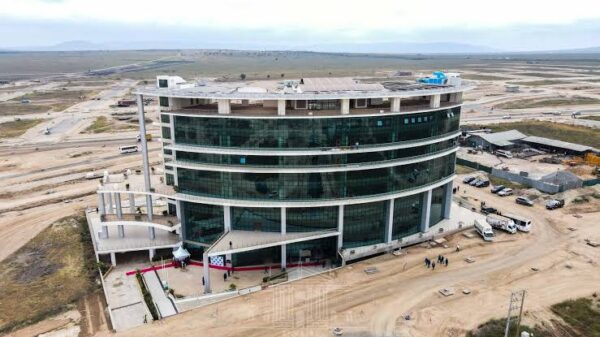NAIROBI, Kenya, Feb 3 – Stockbrokers have called for the formation of an Anti-Fraud Unit within the Capital Markets Authority (CMA) to reduce cases of fraud in the industry.
Kenya Stockbrokers Association and Investment Banks Treasurer (KASIB) Job Kihumba reckoned that market players should work with the CMA to create systems that would deter fraud, investigate and punish offenders of such cases in order to restore investor confidence in the market.
“The cases of fraud in the industry have undermined confidence in the market and this is reflected in the low levels of trading that we are now seeing. This however can be dealt with through a joint effort of all players working together, because it cannot be done by one institution alone,” he said.
Internal and external fraud cases involving both junior and senior members of staff in the brokerage firms and investments banks have become rampant in recent days.
“Fraudsters will hit the investors, they will hit the market players and even the stockbrokers and investment banks have not been spared either. So on one will like to keep them because they can destroy you,” Mr Kihumba emphasised.
He pointed out that although the industry is capable of regulating itself and handling internal cases, an oversight body is needed to keep the players in check.
Mr Kihumba told Capital Business that there’s also a need to develop guidelines that would provide a common approach for all players to deal with issues affecting them.
Relations between the brokers and the CMA have been particularly strained over the last few months due to what has been termed as the regulator’s unwillingness to urgently and effectively address issues raised by the stockbrokers.
A source, who wishes to remain anonymous blamed the sour relations on the CMA Chief Executive Stella Kilonzo’s ‘hard-headedness’ and her unwillingness to cooperate with the brokers to address their problems and other issues in the market.
“Many people and the government have lost a lot of money because the CEO allowed Safaricom shares to be floated despite there being so many loopholes and errors in the prospectus,” he charged.
The source pointed to the cordial relations that have existed between the two parties since the CMA was formed in 1991, which saw the growth of the market through the licensing of additional stockbrokers from the initial six, and defended the brokers against accusations that they call the shots in the industry.
However, he acknowledged that the brokers are keen to have friendly association with the regulator, which would enable the market to grow.
At the same time, he disclosed to Capital Business that a meeting between the stockbrokers and the CMA had been scheduled for Tuesday to iron out the various issues affecting their relationship.
While confirming the meeting, Mr Kihumba disclosed that part of what brokers are demanding is the separate resolution of each case instead of a wholesome condemnation.
He explained that the Nairobi Stock Exchange promoted the creation of CMA to bring an orderly, fair and transparent market, which would also take care of investors’ interests.
“We have recently seen cases of misunderstanding in the industry and the whole purpose is to enhance the relation for the good of the sector,” he said.
The Treasurer added that contrary to reports, the stockbrokerage fraternity is keen on adhering to the industry principles and code of conduct, as the players seek to restore investor confidence in the capital markets.
While admitting that regulations help in the creation of orderly markets, Mr Kihumba said the rules should be ‘reasonable, practical and logical’.
He was reacting particularly to the requirement that stockbrokers and investment banks should raise their minimum capitalisation from Sh5 million to Sh50 million and Sh30 million to Sh250 million respectively before December 31, 2009.
The proposal was contained in the Finance Bill 2008 and the CMA has been pushing for its implementation, which it argues will bring order into the market.


































